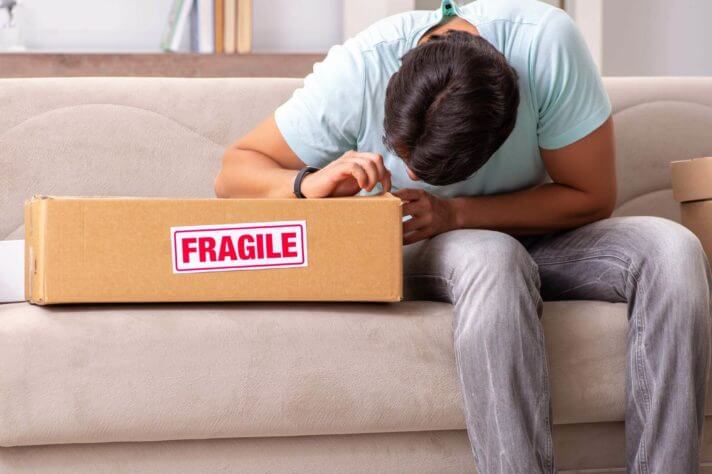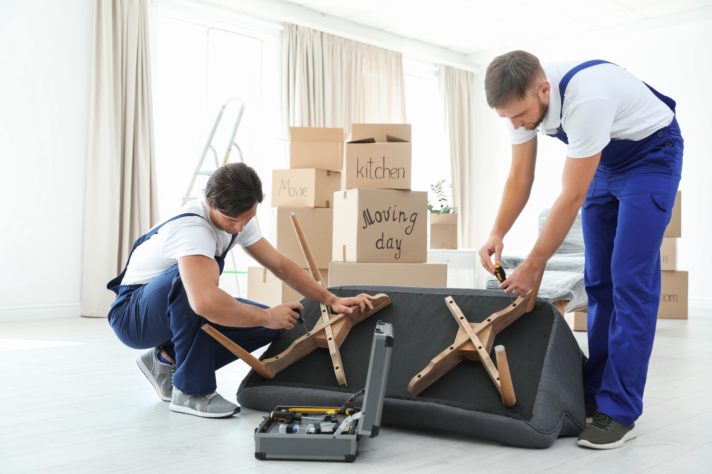Fear not! In this article, we will guide you through practical strategies and expert advice to help you overcome your procrastination tendencies once and for all. Whether you’re preparing for a vacation, a business trip, or a move, these relocation tips will empower you to approach boxing up with confidence and efficiency. Say goodbye to the days of rushed packing and hello to a smoother, more organized experience.
Tips for Overcoming Packing Procrastination
The frustration and stress that comes with delaying the packing process are understandable, but it causes unnecessary anxiety and potential last-minute chaos. Delving into the world of packing procrastination shouldn’t happen without effective tips to conquer this common relocation hurdle.
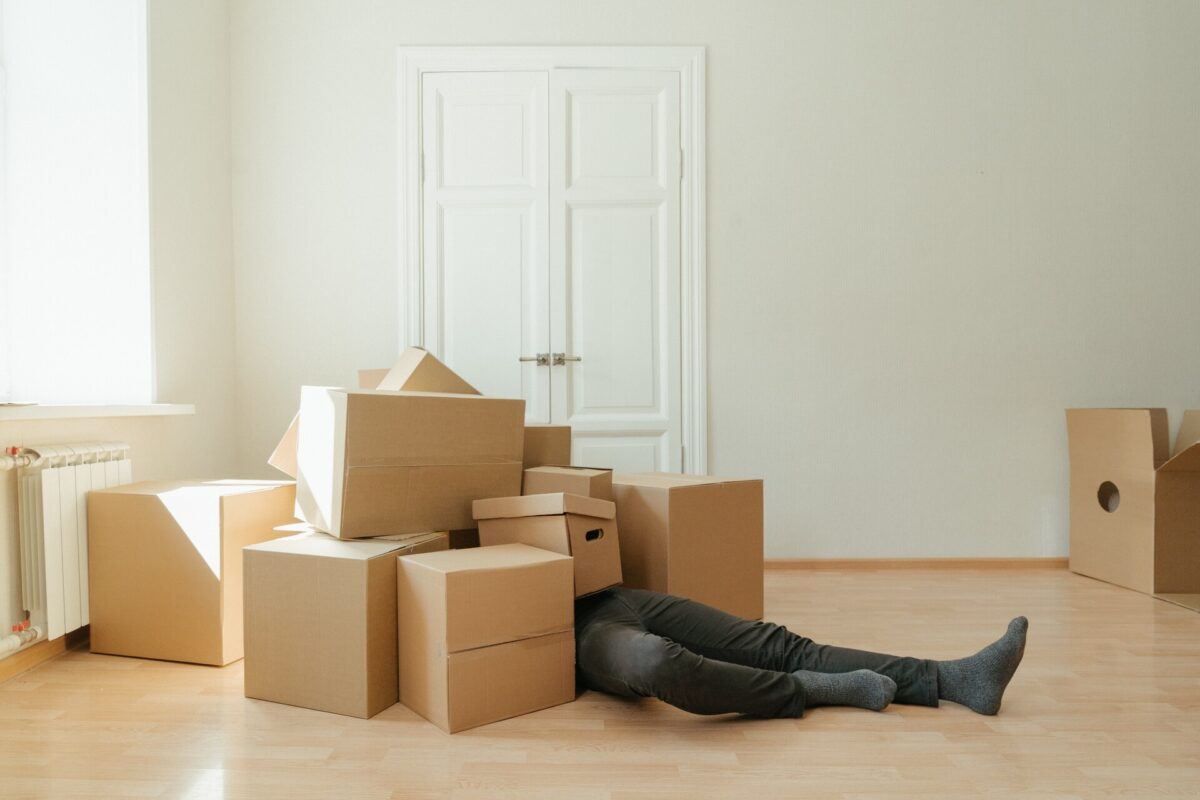

What Is Packing Procrastination?
Ah, packing procrastination in the realm of relocating, the art of postponing the inevitable task of boxing up your life and hauling it to a new abode. It’s like standing on the edge of a diving board, staring at the abyss of moving boxes, and deciding to do an interpretive dance instead because you hate packing.
We’ve all been there, mesmerized by the allure of procrastination. But beware, for the clock is ticking, and the moving truck won’t wait for your tap dance routine. In essence, it refers to the tendency to delay or put off the process of boxing up belongings before a move.
It often stems from a combination of factors, including the overwhelming nature of the task, the emotional attachment to personal belongings, and the general stress associated with relocations.
Why Is It Important to Overcome It During the Process of the Move
Overcoming procrastination during the process of a move is crucial for several reasons. Firstly, it allows you to maintain a sense of control and reduce stress. Secondly, overcoming it helps prevent haphazard packing and potential damage to your belongings.
Furthermore, once you conquer this obstacle will allow you to effectively plan for the logistics of the move. Lastly, overcoming procrastination enables you to enjoy a smoother transition and settle into your new home more quickly.


Understand the Root Causes of Procrastination
To identify the underlying causes of your procrastination, self-reflection is key. Ask yourself why you’re avoiding the task, what emotions or thoughts come up when you think about boxing up (such as anxiety about relocating to another state), and what specific aspects of the process seem most challenging. Journaling or talking to a trusted friend or family member can help gain clarity. When it comes to boxing up, several common reasons contribute to the tendency of postponing it.
Feeling Overwhelmed
The sheer magnitude of this task can be overwhelming, leading to a sense of paralysis. Break it down into smaller, manageable tasks. Create a schedule or relocation checklist to stay organized, focusing on one room or category at a time. This helps alleviate the feeling of being swamped and provides a sense of progress.
Lack of Motivation
Boxing up may seem mundane and unexciting, making it difficult to find the motivation to start. Reflect on the reasons behind your move and visualize the positive outcome. Set specific goals, such as completing a certain number of boxes each day, and reward yourself after achieving them. Additionally, involve friends or family members to make the process more enjoyable and collaborative.
Different Distractions
Procrastination often arises from distractions like social media, television, or other obligations. Identify and minimize these distractions by creating a dedicated environment. Put away electronic devices, establish a designated packing area, and communicate with others about your focused time for this specific task. Set specific time blocks for this task and commit to them.
Emotional Attachment
Relocating may involve letting go of sentimental items or facing the emotional weight of leaving familiar surroundings. Recognize and acknowledge these emotions. Give yourself permission to take breaks and process your feelings. Consider the practicality and value of each item to help make decisions about what to keep and what to let go of.
Fear of Change or the Unknown
Moving to a new place can evoke feelings of uncertainty and anxiety. Acknowledge these emotions and focus on the positive aspects of the move, such as new opportunities, a fresh start, or exciting experiences that await you. Remind yourself that change is a natural part of life, and embracing it can lead to personal growth and new adventures.
Develop a Packing Plan
Creating a plan is an essential step toward a successful move. It not only helps you stay organized but also saves you time and prevents last-minute panic. By breaking down the process into manageable tasks, you can pack your belongings efficiently and with ease. Here are a few reasons why creating a plan is important:
- It helps you stay organized. A plan acts as a checklist while you’re handling everything, helping you keep track of what you’ve packed and what you still need to pack.
- It saves you time. With a plan, you can prioritize the items that need to be packed first and avoid wasting time on unnecessary items.
- It prevents last-minute panic. By having a plan in place, you save yourself the stress of scrambling to pack everything at the last minute.
Some Tips for Managing Time
So, how to start packing for a move? Here are some tips and tricks for creating a realistic timeline and breaking the process down into manageable tasks:
- It’s never too early to start. Begin by creating a timeline based on your moving date.
- Instead of tackling your entire home in one go, break the process down into smaller tasks. Begin by handling one room at a time.
- Prioritize your belongings. Start by boxing up items that you don’t use frequently, such as off-season clothing or extra linens.
- Clearly label each box with its contents and the room it belongs in. This reduces confusion and makes it easy to unpack after the move.
- Get rid of what you no longer need. Before you start putting stuff into boxes, declutter your home and get rid of anything that you no longer need. This not only reduces the number of items you need to pack but also makes unpacking in your new home easier.
By creating a plan and sticking to it, you can turn a stressful move into a seamless experience. With a little bit of planning and organization, you can take control of your move and enjoy a fresh start in your new home.


Get Rid of Unnecessary Items
Decluttering and getting rid of unnecessary items before boxing everything up can bring several benefits, both practical and emotional. From a practical standpoint, it saves time, money, and effort. The less stuff you have to pack and move, the less time and effort it will take to do so.
You will also save money on different types of packaging materials, transportation, and storage costs. Furthermore, decluttering can help you organize your belongings more efficiently, making it easier to pack and unpack in your new home.
Packing
Our expert moving teams are trained to ensure the safety of your personal belongings.
Moving Insurance
Cross Country Moving Company is the most trusted name in the relocation industry in the country.
Tips for Sorting Through Belongings
When it comes to sorting through belongings, it’s important to be efficient and organized. Start by setting aside dedicated time to sort through your belongings and break them down into categories, such as clothing, books, and kitchen items. Use the “keep, sell/donate, and toss” method for each item, and be honest with yourself about what you truly need and use.
Consider using the “one-year” rule for items you haven’t used in over a year. Remember to consider sentimental value (Marie Kondo‘s advice would say, “does this item spark joy?”) and don’t be afraid to ask for help from friends or family.
Sell Items or Donate Them
Selling items can provide a financial benefit and help justify the time and effort you invest in decluttering. You can try selling items online, at a garage sale, or through a consignment shop.
Donating items can also be fulfilling because it helps those in need and gives you a sense of satisfaction knowing that your unwanted items will be put to good use. Look for local charities or organizations that accept donations, such as homeless shelters, women’s shelters, or organizations that support veterans or children.
The following video might help you decide whether to sell or donate your unwanted belongings.
Use the Right Tools and Supplies
Using the right tools and supplies when boxing up is crucial for protecting your belongings and ensuring they arrive at your new home intact. It’s important to invest in high-quality materials, such as sturdy boxes, sturdy tape, bubble wrap, and packing paper, to ensure that your items are properly secured.
Additionally, using the right supplies can make the process much easier and more efficient. For example, using a dolly, furniture sliders, and lifting straps can help you move heavy items safely and without unnecessary strain.
Obtaining different materials is also important, and there are several ways to do so. You can purchase supplies from moving companies, home improvement stores, or online retailers. Alternatively, you can ask friends or family members for any boxes they may have or check with local stores to see if they have any extra boxes that they are willing to give away.
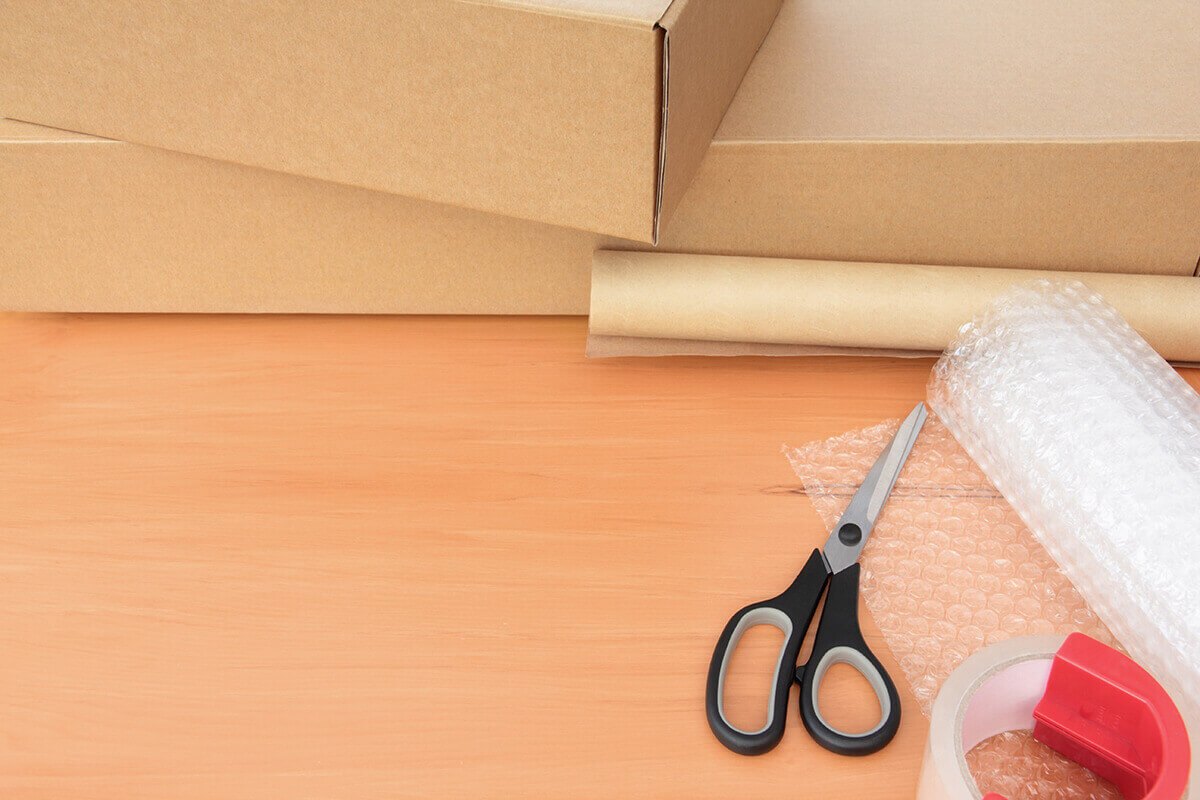

Get Help From a Cross Country Moving Company
Using a long-distance moving company can be a smart investment when moving cross country. Cross-country movers can help to simplify your move and ease your stress levels, and they can save you a tremendous amount of time and effort, as well as reduce the risk of damage to your belongings. Overcoming stress because you’re relieved of some of the tasks is another benefit of investing in long-distance moving services.
Use as Many Cross Country Moving Services as You Can
Additionally, many cross-country moving companies offer additional cross-country moving services such as storage service and even auto shipping service. Storage solutions can be a great option if you need to store some of your belongings before or after the move. Packing materials provided by professional long-distance movers can help to ensure that your items are protected during the move.
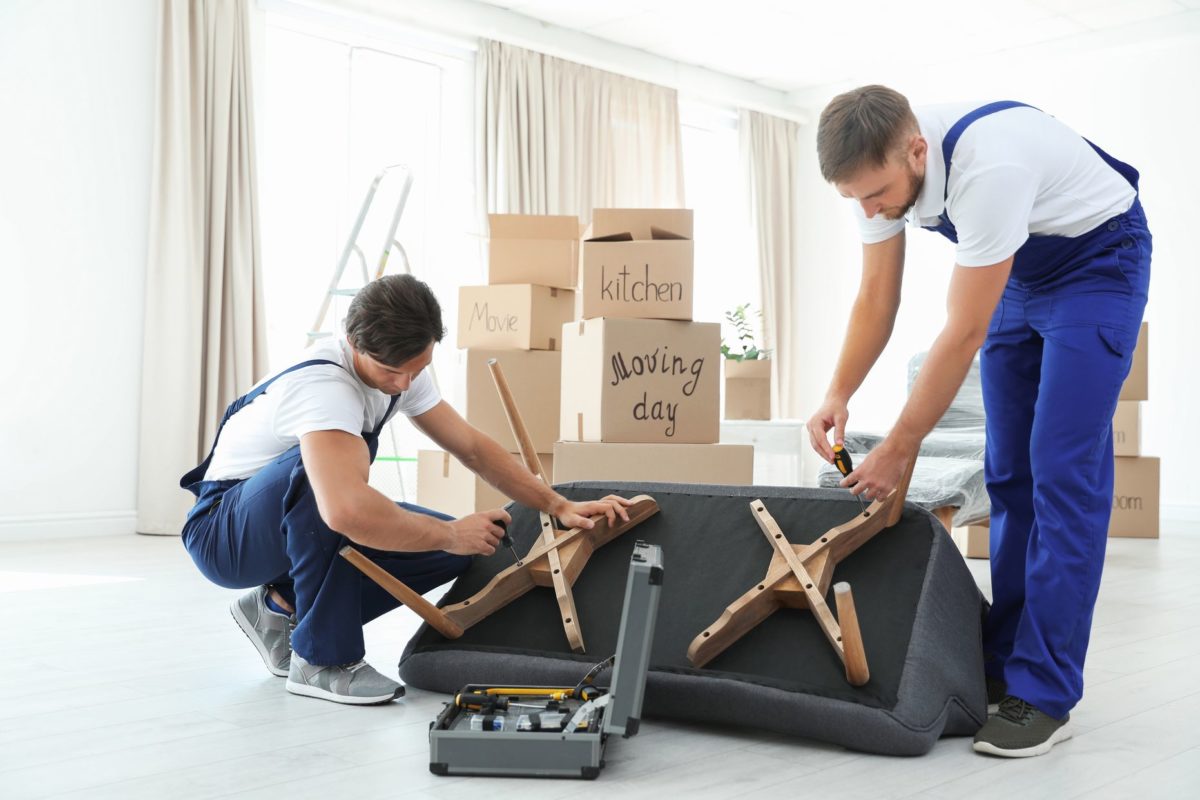

Find Ways to Stay Motivated
Staying motivated during the boxing-up process is essential to ensure a smooth and successful move. It can be easy to get distracted or overwhelmed by all the tasks that need to be done. To stay motivated, take breaks when needed, and reward yourself with small treats along the way.
Use positive self-talk, and remind yourself of the end goal and the benefits of the move. Also, try to keep your space tidy and organized, as this will help you relax and focus better and finish the task in no time.
When You Overcome Procrastination, Relocation Will Be Easy
Overcoming procrastination is a crucial aspect of simplifying the relocation process. Procrastination can cause added stress and anxiety as deadlines approach, leaving you feeling unprepared and unorganized. By tackling tasks early and breaking them down into manageable steps, you can avoid this procrastination pitfall and make the relocation process much more manageable.
By staying motivated and setting goals for yourself, you’ll be well on your way to a successful move. Ultimately, by keeping procrastination at bay, you’ll be able to approach each step of the relocation process with ease and have a more seamless transition to your new home.
FAQ
Why Do I Keep Procrastinating When It Comes to Packing?
You may be procrastinating due to the overwhelming nature of the task or uncertainty about where to begin.
How Do I Create a Realistic Packing Plan and Stick to It?
Set a timeline for tackling each room, break tasks into smaller steps, and prioritize items.
What Should I Do With Items That I No Longer Need or Want Before I Start Packing?
Create piles for keep, sell/donate, and toss before boxing up so you don’t bring unnecessary items.
What Packing Supplies Do I Need to Have on Hand?
Sturdy tape, boxes, bubble wrap, and packing paper are necessary supplies for protecting your items.
How Can I Enlist the Help of Others During the Packing Process?
Ask friends and family for help or hire a professional cross-country moving company.
How Can I Stay Motivated and Avoid Distractions When Packing?
Take breaks, reward yourself, and use positive self-talk to stay motivated and avoid distractions.
What Are Some Strategies for Overcoming Feelings of Overwhelm When Faced With Packing Tasks?
Break tasks down into smaller steps, listen to music, and stay organized.
How Do I Prioritize Packing Tasks and Determine Which Items to Pack First?
Prioritize frequently-used items and fragile belongings first.
What Are Some Common Packing Mistakes to Avoid?
Avoid over-stuffing boxes, properly label boxes, and do not pack boxes too heavy.
How Can I Make Packing More Fun and Enjoyable?
Play music, invite friends over to help, and make it a game or challenge.

